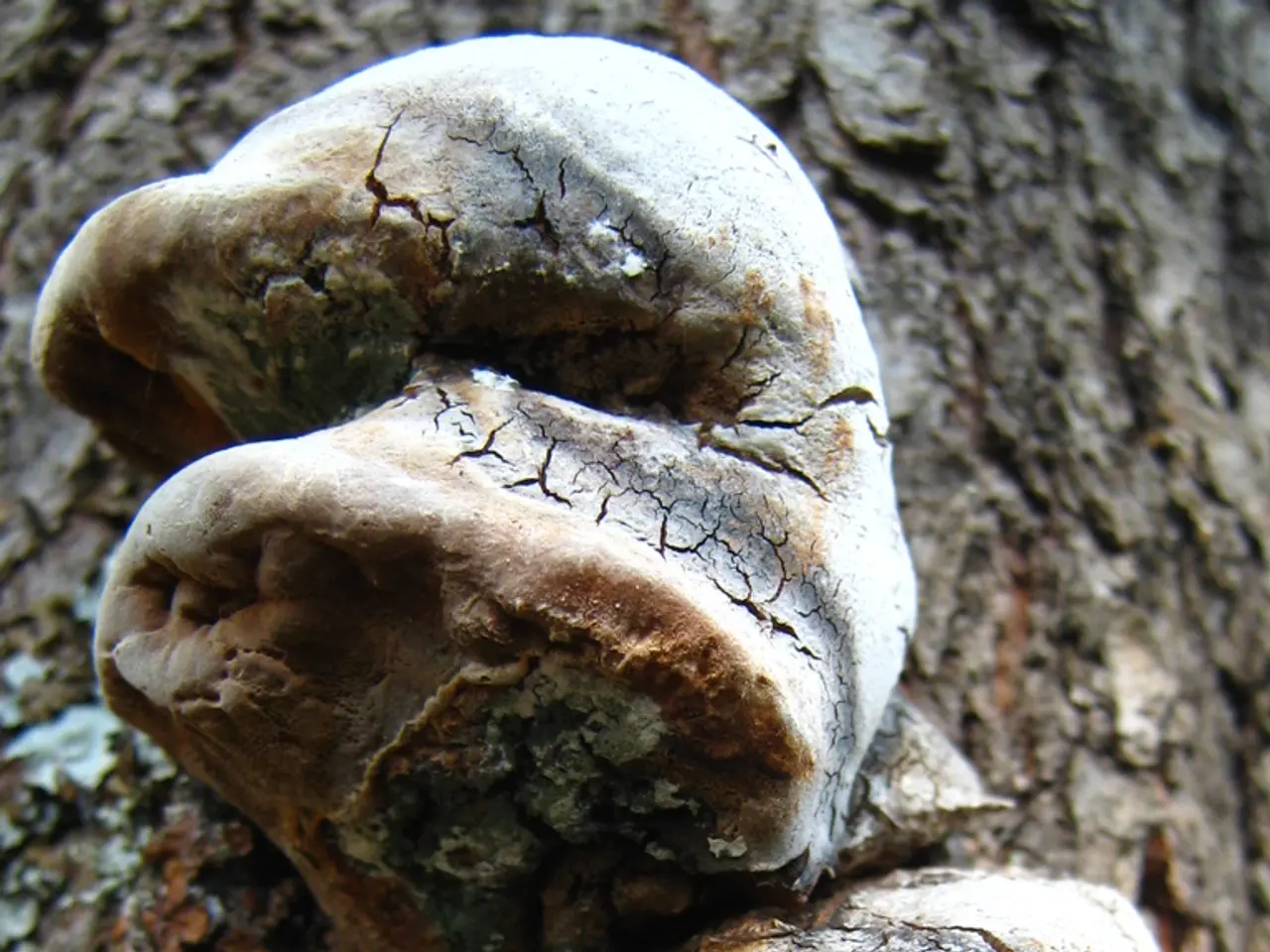Exploring the Link Between Persistent Sinusitis and Mould Allergies
In many homes, mould can grow undetected, posing a significant health risk for some individuals. Chronic sinusitis, a condition characterised by inflammation and swelling of the nasal passages and sinuses for 12 weeks or longer, is often linked to exposure to mould and other allergens.
To prevent chronic sinusitis caused by mould allergies, it's essential to focus on reducing exposure to mould and allergens. Keeping your living space free of mould can be achieved by controlling humidity levels using air-conditioners or dehumidifiers, and ensuring prompt drying after floods. Mould growth can also be prevented by fixing any leaks around the home and using exhaust fans in the kitchen and bathroom to allow air to vent outside.
When it comes to cleaning, mould-killing products are particularly useful, especially in the bathroom. It's also important to avoid outdoor mould exposure when possible and minimise other allergens at home such as dust and pet dander.
During symptoms, medications like antihistamines and nasal corticosteroid sprays can help reduce allergic inflammation in the sinuses. Saline nasal irrigation can clear mucus and allergens from nasal passages, improving drainage and relieving congestion.
For persistent or severe cases, allergy immunotherapy (allergy shots or sublingual tablets) tailored to mould allergens can significantly reduce sensitivity and chronic inflammation over time. If sinusitis continues despite these measures, a doctor might recommend prescription oral or nasal steroids, antifungals, or minimally invasive procedures like balloon sinuplasty to improve sinus drainage.
Additional supportive methods include elevating the head during sleep, using humidifiers to keep nasal passages moist, and avoiding irritants such as smoke and scented products to prevent flare-ups.
If chronic sinusitis symptoms persist beyond 10 days or worsen, or if there are frequent recurrences, it's important to consult an ENT specialist to evaluate for advanced treatments or surgery tailored to your condition.
In summary, managing chronic sinusitis from mould allergies requires a combination of environmental control, medication to reduce allergic inflammation, nasal hygiene, and possibly immunotherapy or procedural interventions in resistant cases. By taking these preventive measures and seeking medical advice when necessary, you can effectively manage and alleviate the symptoms of chronic sinusitis caused by mould allergies.
- Mental health is an integral part of overall health and wellness, and dealing with chronic health conditions like chronic sinusitis can impact it significantly.
- In the realm of environmental science, climate change and increases in environmental pollutants may contribute to a higher prevalence of respiratory conditions, including chronic sinusitis.
- Skin care becomes more important in managing symptoms of chronic sinusitis, as frequent nose blowing can lead to dry and irritated skin around the nasal area.
- Proper nutrition plays a crucial role in boosting the immune system, which can help manage inflammation and promote healing in the body, especially in chronic-disease cases like chronic sinusitis.
- Along with improving mental health, investing in fitness and exercise can help strengthen the respiratory system, enhancing its ability to combat health-related problems such as chronic sinusitis.
- Embracing a lifestyle that focuses on home-and-garden maintenance, such as regularly cleaning and maintaining houseplants, can help reduce exposure to mould and allergens that trigger chronic conditions like sinusitis.
- Businesses in the food-and-drink industry should prioritize offering healthier options and taking steps to mitigate allergens that may contribute to health problems, such as chronic sinusitis, in their customers.
- Personal-finance education becomes essential in managing the costs associated with chronic diseases like chronic sinusitis, including medication, doctor appointments, and any necessary surgeries.
- In the expansive field of education and self-development, learning about the latest research in data-and-cloud-computing can drive advancements in medical-conditon diagnosis, including the development of new diagnostic tools for chronic sinusitis.
- Technology has revolutionized the way we understand our health, particularly with the tracking and analyzing capabilities available through sports-analysis apps, empowering individuals to monitor their own symptoms and potentially identify patterns related to chronic sinusitis.
- For those who enjoy basketball, staying active through participation in sports can help manage stress, a common contributor to mental-health issues.
- Shopping for products that cater to sensitive skin and allergies can help minimize the impact of environmental allergens on symptoms of chronic sinusitis.
- Continuing education and self-growth in the area of learning is essential in staying informed about new research and developments in environmental-science, particularly concerning the impact of climate change on respiratory-conditions like chronic sinusitis.
- In addition to reducing exposure to mould, proper maintenance and care of the home can help manage chronic-diseases like chronic sinusitis by minimising other allergens such as dust mites and pet dander.
- By incorporating adequate hydration, a nutrient-dense diet, and exercises such as yoga and pilates, we can improve overall health and alleviate symptoms of chronic diseases like chronic sinusitis, promoting a more balanced and fulfilling lifestyle.




